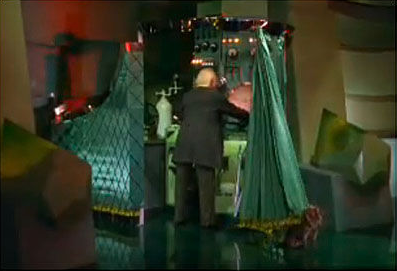|
home | what's new | other sites | contact | about |
||
|
Word Gems exploring self-realization, sacred personhood, and full humanity
Analyzing the Typical Religious Attitude
return to the main-page article on "God"
“Worship at the church of your choice.” “Worship at the church of your choice,” in many cases, is code language for “Worship according to your particular superstition.” And the many tens of thousands of religious organizations, each claiming to be “right,” with its own infallible teachings and high-gurus, affirm this assessment. People play little games with each other, an unspoken pact, such that, "I won't criticize your superstitions as long as you don't criticize mine." It makes for good neighbors, on a superficial basis.
“something larger than yourself” We’ve often heard the phrase that we should work for, or be a part of, “something larger than ourselves.” Sounds magnanimous, almost noble, doesn’t it? However: There is nothing larger than yourself; that is, when you become aware of “the true self,” the holy of holies of your own inner person, the seat of consciousness, linked to Universal Consciousness – God – as then we discover a sense of oneness, a perception of being intimately linked, with Highest Divinity.
An attempt to be part of something "larger than yourself" is just the needy little ego's "sloganeering," trying to attach itself to, to identify with, some perceived enhancement by which it hopes to feel stronger and better about itself. But there is no need for this security-blanket once eyes have opened.
a drop in the ocean may be just a drop but it’s also the ocean There will be those who will decry my statement of “there is nothing larger than yourself” as proof that I speak at the behest of a prideful Satan who loves to overthrow the government of God. But criticism here is just the Wizard behind the curtain trying to keep you dependent on the local cult leaders.
Each of us, individually, is but a drop of awareness in the vast cosmic Ocean of Universal Intelligence, but we also become, and are, that Ocean.
A cognizance of such is not an “utterly shameless” hubris mouthing nonsense, but a clear-eyed, quiet-spirited recognition of Reality. What other plain meaning could be taken from the common New Testament phrase, “you are sons and daughters of God”? We are part of God’s own essence, “in whom,” as Paul said, “we live and move and have our being.” And if we derive our “being” from the Great Being, then we are also part and parcel of the latter, that Great Ocean of Consciousness and Being.
slipshod workmanship? - but you want to blame the product? Big Mother Church has crafted an assortment of “holy” doctrines designed to keep you subservient, paying-and-praying, and ever dependent on their mediatorial professional services. They attempt to convince you that you are not good enough, that God could never love you enough, that you are defective, and if you have a future at all, it is only by the “grace” and “love” and “mercy” of Highest Divinity. But if this were true, we must hasten to remind our infallible teachers that we did not create ourselves, and if we have been constructed with such sloppy and shoddy workmanship so as to condemn the unit-of-production, what does this say about an omnipotent God, the Maker of all things? Not much. They want to have it both ways: God is omni-this and super-that, but he produced such slipshod trash that it required immediate warranty repair at the shop -- commonly known as a church service.
the needy child and the strong father-mother The great psychologists explain the immature mind. It is fearful. It is unsure of itself. Like a small child afraid of the dark, it seeks for safety and security. This is part of the natural process of growing up, and we need not deride ourselves for feeling less than Superman during our younger years.
But there are unscrupulous people in this world – the “utterly shameless,” as we discussed in the “consciousness article” – who will cultishly play upon those fears, and will try to make merchandize of them, and of you, if you let them. The typical religious attitude is that of a little child very impressed with a strong father-mother figure, one who will rescue from all manner of inhospitable events and happenings in this world. It’s a place to start, but we need to grow out of this. Little children need this security for a time. But when we stay there and live in that immaturity, it’s no longer something healthy. And if we remain in this mindset, and become hard-core, and cross to the other side in this spirit of co-dependency, we open ourselves to the possibility of cult-deprogramming before we can enter Summerland proper. Father Benson works as part of team in this regard, helping the new arrivals recover from the kindly works of Big Mother Cult and the Nice Young Man at Church.
We are "made in the image." We are meant to grow up. We are meant to expand, to soar, to become who we truly are, and to mine the riches of the soul.
But Big Mother will do all she can to keep you feeling incompetent, guilt-ridden, fearful, and servile.
|
||
|
|








